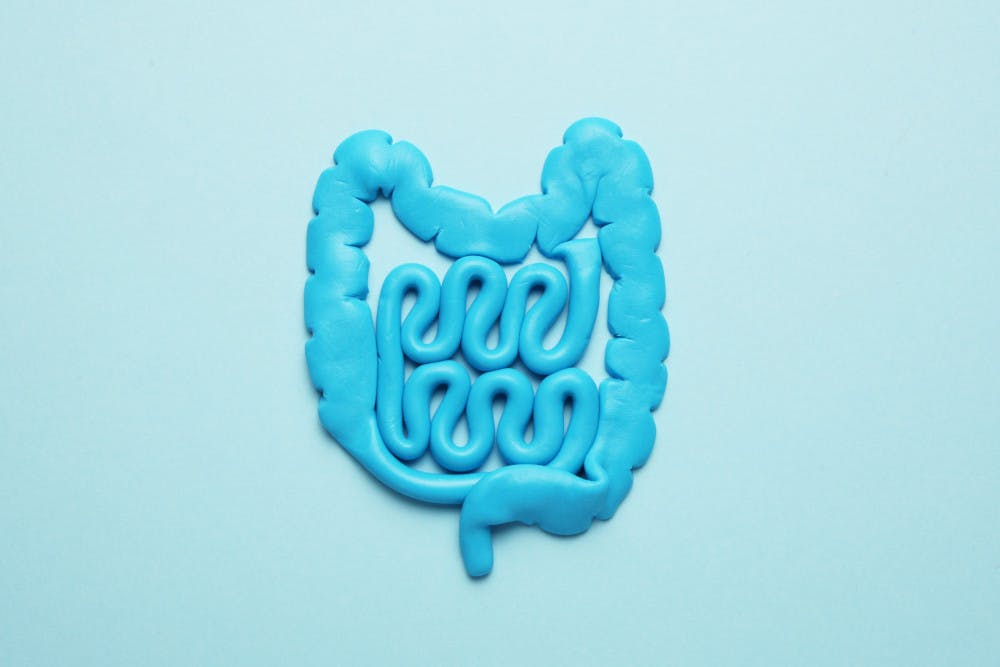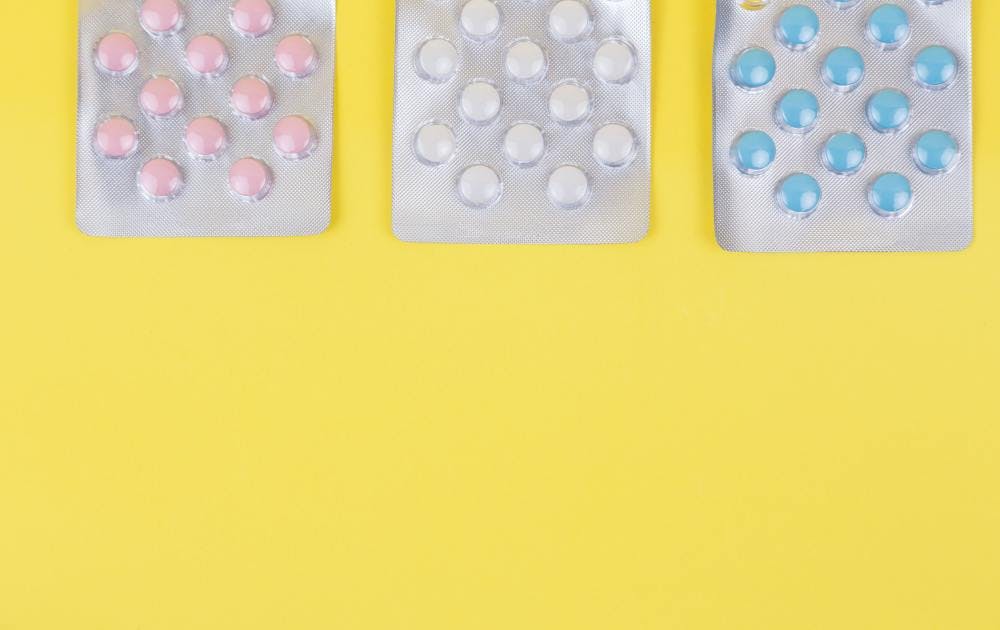The best probiotics after antibiotics
Learn how you can use probiotics to counter the long term side effects of antibiotics.


Antibiotics are a double-edged sword. They don’t only kill the bad bacteria in your body, but can wipe out the important, beneficial bacteria in your gut.
That’s why it’s beneficial to take probiotics after antibiotics. If you want to learn how to reverse the effects of antibiotics and improve your gut microbiome, keep reading. We’ll also break down the best probiotics after antibiotics to replenish your good bacteria.
Antibiotics and your gut: harmful side effects on your healthy intestinal flora

There are six primary forms of antibiotics used in the UK:
Penicillins for general infections like skin infections or urinary tract infections
Macrolides for those who have a penicillin allergy or who have an infection from a penicillin-resistant bacteria strain
Cephalosporins for more severe infections, such as meningitis
Aminoglycosides, which are typically used in hospitals due to their severe side effects
Tetracyclines for many skin conditions
Fluoroquinolones, which are slowly being phased out of general usage
While each drug is different, they have one thing in common: while they can effectively target the bacteria that makes you sick, they also have widespread collateral damage on all bacteria in your body.
Antibiotics may are also heavily over-prescribed (some estimates warn that 50% of antibiotic prescriptions are unnecessary). This is especially alarming in light of the increasing usage of antibiotics in the UK, and also due to the important connection between good bacteria and your general health and wellness.
The unseen side effects of antibiotics on your gut
There are an estimated 7,000 bacteria strains that live in your gut. Researchers have found that after only a few days of taking antibiotics, there is “an almost complete eradication of gut bacteria.”
While your gut bacteria can start to recover on their own, those same researchers found that:
The balance between different strains of bacteria in your gut never fully recovers
Some beneficial bacteria never return
New, harmful bacteria take advantage of the gut imbalance and take up residence in your gut
This can lead to antibiotic side effects like:
Diarrhoea
Queasiness
Cramping
Bloating
Some antibiotics are worse than others when it comes to the impact on your beneficial bacteria. However, a review of 1,000 commonly prescribed drugs found that the general results were the same across the board: your gut is collateral damage whenever you’re prescribed antibiotics.
When to take probiotics with antibiotics
Taking antibiotics may wipe out an infection you’re struggling with. But unless you take immediate care of your gut after finishing your round of medication, your brain health and mental health may struggle for months afterwards while your gut tries to get back to a place of balance.
There is a complex connection between your gut and your brain, which doctors refer to as the gut-brain axis:
Your gut is directly linked with your central nervous system
The bacteria in your gut produce numerous brain chemicals related to mood, cognition, and emotion, such as serotonin and dopamine
A healthy bacteria population is linked with reduced illness risks and improved mental health
A strong gut microbiome may improve cognition, including memory and learning
Thankfully, there are several ways to improve gut microbiota and speed up your guts recovery after antibiotics.
Can you take probiotics with antibiotics?

Yes, you can take probiotics with antibiotics. But, if you want to learn how to reverse the effects of antibiotics or how to increase your gut health after antibiotics, talk to your doctor first. Diet, supplements, and lifestyle can all affect your gut, and you want to ensure any health strategies you choose won’t negatively impact the infection you’re trying to mend.
Likewise, make sure you finish your round of antibiotics as instructed by your medical care professional. If you stop taking your antibiotics before your full dose is completed, it can cause a resurgence in your infection and may prolong how long you need to take them (and worsen your gut health).
How long after antibiotics should I take probiotics?
You also need to consider how long to take probiotics after antibiotics. Each day, take your probiotics as far apart from your antibiotics as possible - at least a few hours. For example, if you need to take your antibiotics every morning and evening, consider taking your probiotics at lunchtime. This gap is crucial as antibiotics can kill the bacteria in your probiotics.
The best probiotic to take after antibiotics
Here are some healthy ways to replenish your good bacteria.
1. Eat prebiotic food
Prebiotic foods are those that contain specific forms of fibre that feed the microorganisms in your gut. Your gut’s beneficial bacteria thrive on:
Inulin fibre
Fructo-oligosaccharides fibre
Galacto-oligosaccharides fibre
2. Improve gut microbiome
By ensuring your diet is high in prebiotics, you set a strong foundation for improving gut microbiome and giving your bacteria everything they need to repopulate your intestines quickly.
Specific foods to incorporate include:
Vegetables like asparagus, beets, Jerusalem artichokes, and cabbage
Legumes, such as kidney beans and chickpeas
Fruit like dates, figs, and stone fruit
Whole grains
3. Probiotic supplements after antibiotics
Probiotics are supplements that contain live, beneficial bacteria. They’re also one of the best probiotics to take after antibiotics. Taking these supplements while you’re taking your antibiotics can also help to counter the impact that the drugs have on your gut bacteria.
For the best results when taking probiotics with antibiotics, look for a supplement that contains either strains of Saccharomyces or strains of Lactobacilli. These are the most widely used bacteria strains in antibiotics-related research.
4. Add fermented foods to your diet
If you want to learn how to restore healthy gut flora, it all starts with fermentation. Fermented foods are naturally high in beneficial bacteria, and eating them helps to repopulate your gut after antibiotics.
As noted above, antibiotic usage can also cause an increase in harmful bacteria in your digestive tract. If you want to learn how to get rid of bad bacteria in your gut, studies have shown that fermented foods like yoghurt actually help to eliminate harmful bacteria while increasing beneficial bacteria.
Other fermented foods to try include:
Kimchi
Cheese
Yoghurt
Kombucha
Tempeh
Miso
Sauerkraut
5. Support your brain health while your gut-brain axis is recuperating
Researchers are unclear exactly how long it takes for your gut to fully recover after antibiotics, even if you’re taking the best probiotics after antibiotics. Many factors, from the type of infection you were battling to the type of antibiotic you were taking, all influence this factor.
Yet the effects on your memory, learning, emotions, and general brain health are real.
When to take probiotics with antibiotics
Taking antibiotics can impact on the good bacteria in your gut. By taking probiotics with antibiotics, you can help keep your body in balance.